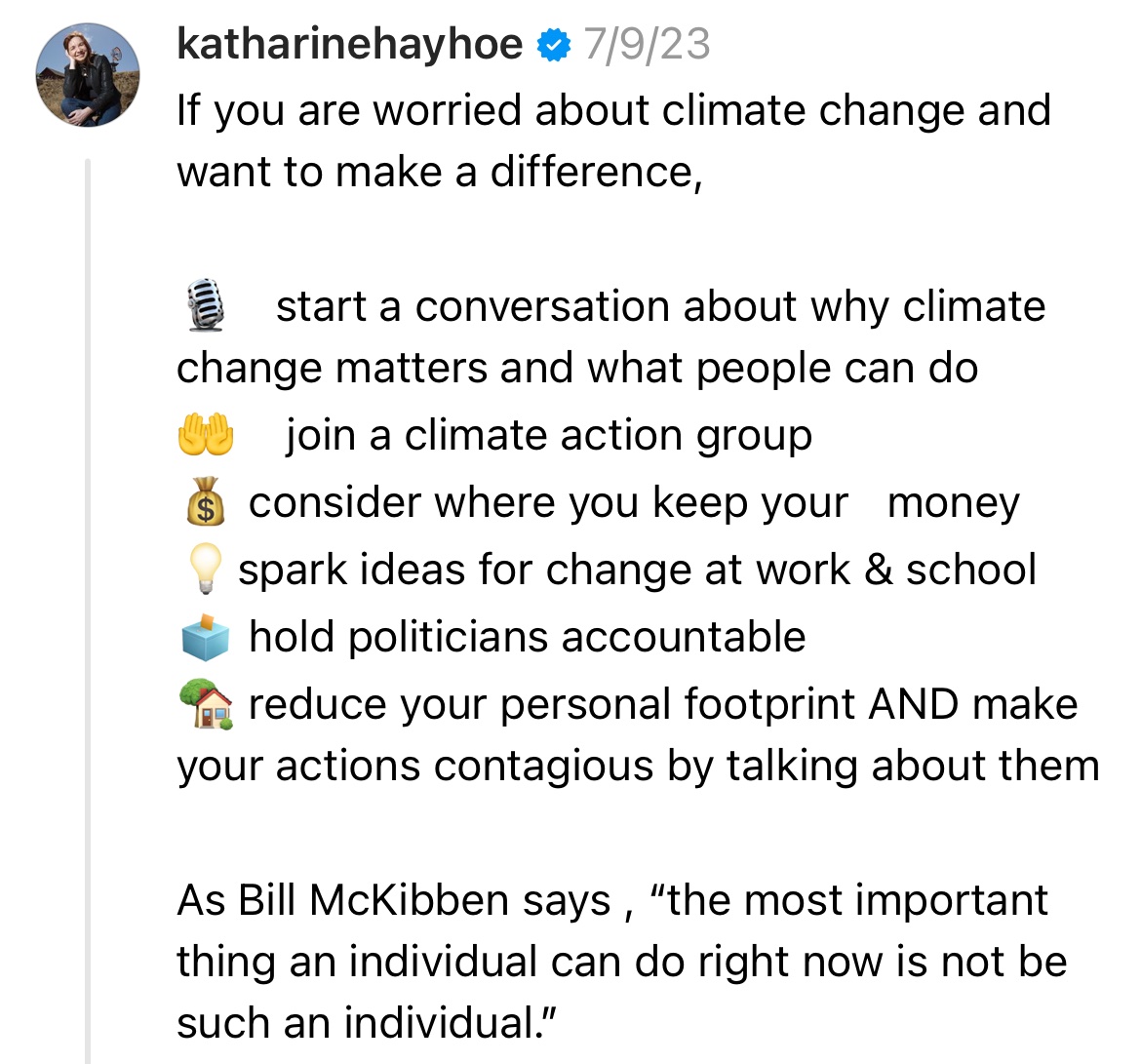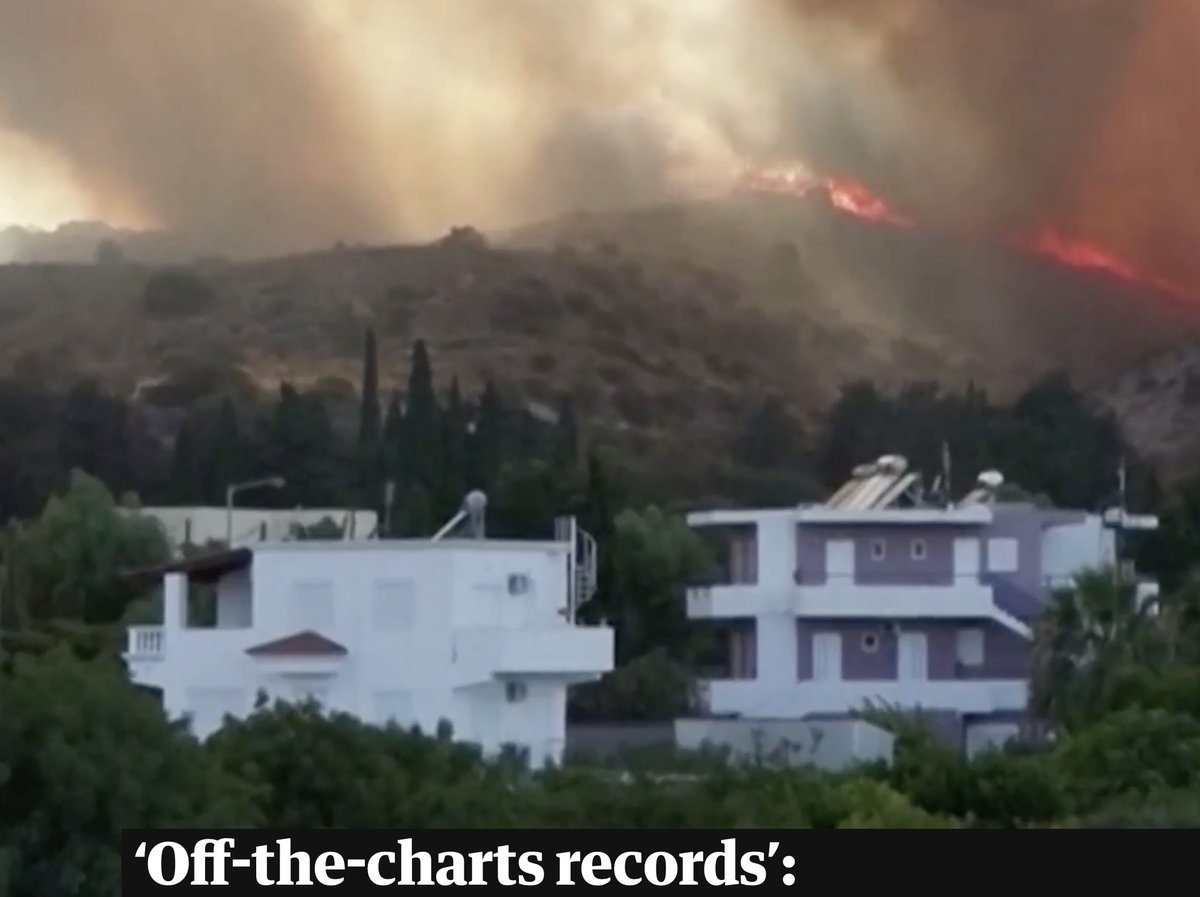At the hearing for the deputy @NASA administrator today, nominee Jim Morhard was asked by @EdMarkey if he agrees with the scientific consensus that humans are the dominant influence on climate. He said he couldn't say.
Well, I'm a scientist, and I can. Here's why. (thread)
Well, I'm a scientist, and I can. Here's why. (thread)
When we see climate changing, we don't automatically jump on the human bandwagon, case closed. No, we rigorously examine and test all other reasons why climate could be changing: the sun, volcanoes, natural cycles, even something we don't know yet: could they be responsible? ..
Could it be the sun? No: the sun's energy has been going down at the very time that the average temperature of the planet continues to rise. For more info, read: skepticalscience.com/solar-activity… and no, even a Grand Minimum wouldn't save us. See: realclimate.org/index.php/arch… 
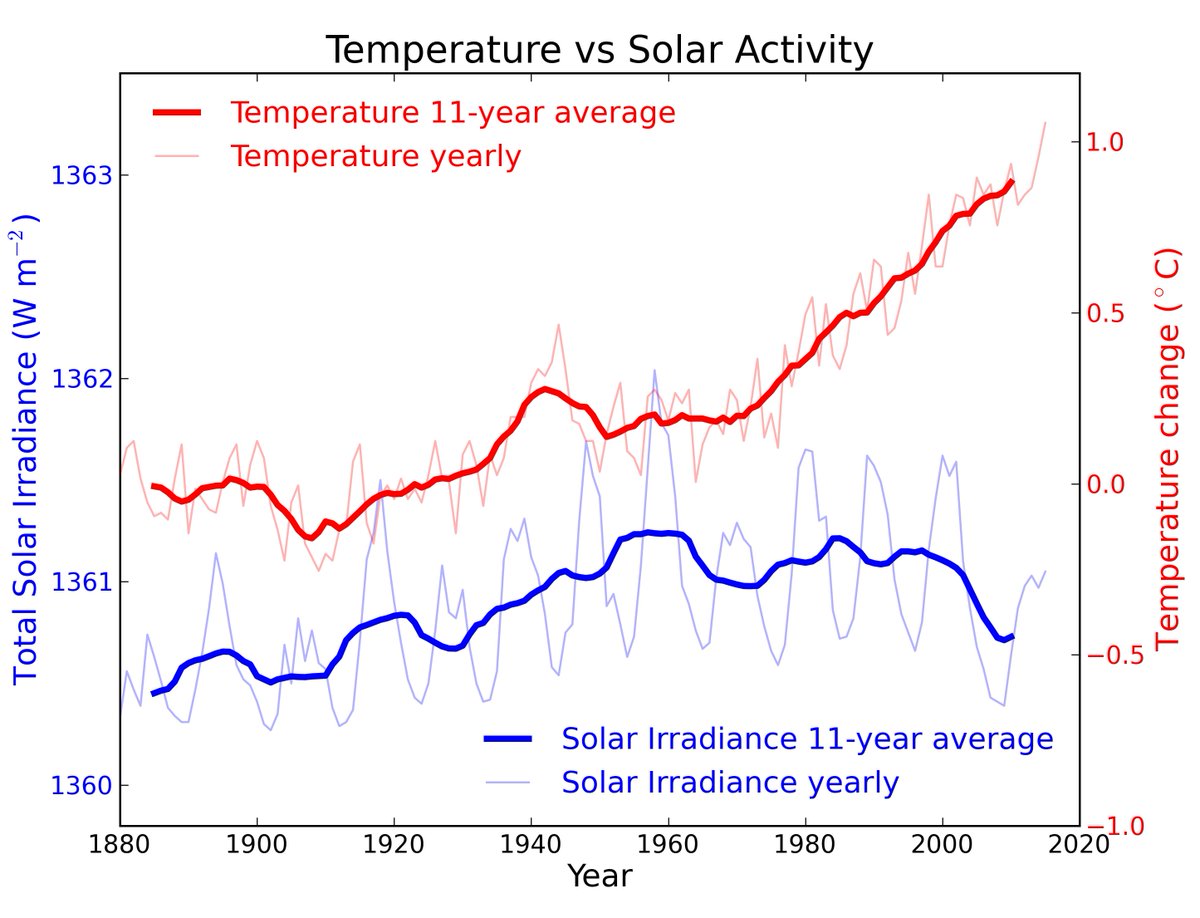
Could it be volcanoes? No: though a big eruption emits a lot of soot and particulates, these temporarily cool the planet. On average, all geologic activity, put together, emits only about 10% of the heat-trapping gases that humans do. For more, read: agupubs.onlinelibrary.wiley.com/doi/pdf/10.102…
Could it be orbital cycles? Are we just getting warmer after the last ice age? No: warming from the last ice age peaked 1000s of yrs ago, and the next event on our geologic calendar was another ice age: was, until the industrial revolution, that is. Read: people.clas.ufl.edu/jetc/files/Tze… 
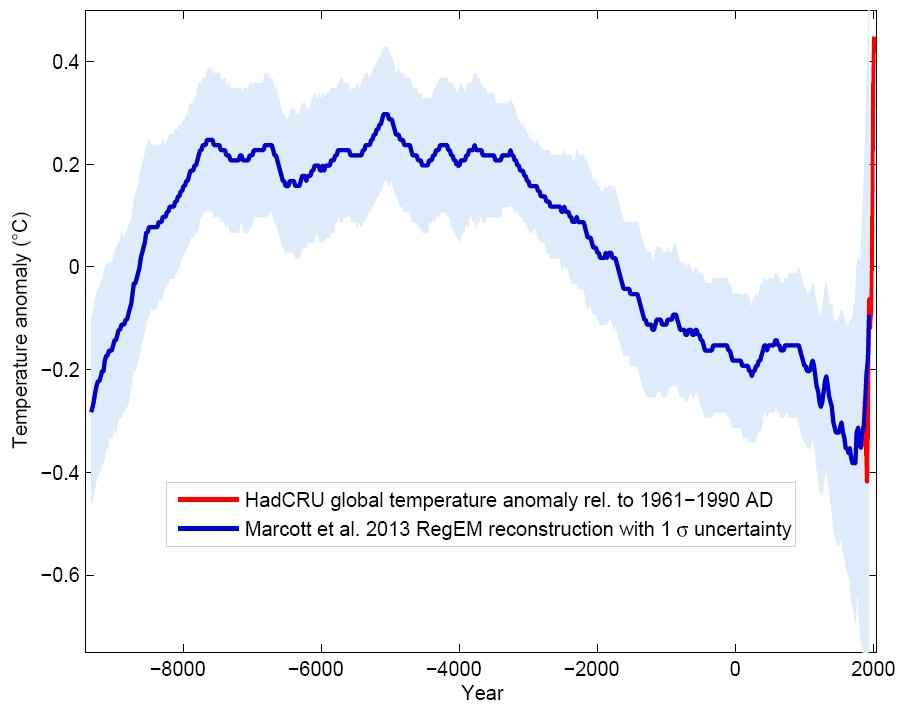
Could it be natural cycles internal to the climate system, like El Nino? No: those cycles simply move heat around the climate system, mostly back and forth between the atmosphere and ocean. They cannot CREATE heat. So if they were responsible for atmospheric warming, ....
... then the heat content of another part of the climate system wd have to be going down, while the heat content of the atmosphere was going up.
Is this what we see? No: heat content is increasing across the entire climate system, ocean most of all! See: skepticalscience.com/graphics.php?g…
Is this what we see? No: heat content is increasing across the entire climate system, ocean most of all! See: skepticalscience.com/graphics.php?g…
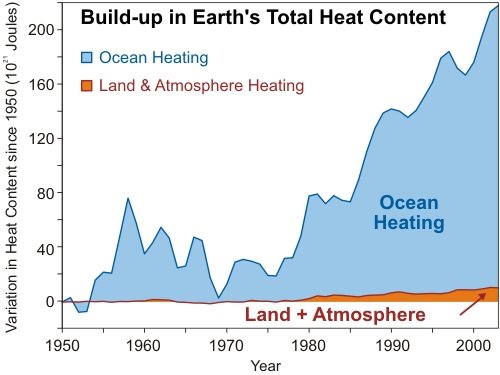
Could it be cosmic rays? No. See: skepticalscience.com/graphics.php?g…
How about the magnetic pole moving? Planet Niribu? Geoengineering? No.
What about an unknown factor we don't know about yet? Nope, covered that here: journals.ametsoc.org/doi/pdf/10.117…
How about the magnetic pole moving? Planet Niribu? Geoengineering? No.
What about an unknown factor we don't know about yet? Nope, covered that here: journals.ametsoc.org/doi/pdf/10.117…
The bottom line is this: We've known since the work of John Tyndall in the 1850s that CO2 absorbs and re-radiates infrared energy, and Eunice Foote was the first to suggest that higher CO2 levels would lead to a warmer planet, in 1856. Read it here: books.google.com/books?id=fjtSA…
No one - NO ONE - has been able to explain how increasing levels of CO2, CH4 and other heat-trapping gases would NOT raise the temperature of the planet. Yet that must be done first, if we are to consider any other sources as "dominant".
Moreover, when @RasmusBenestad + I + others examined dozens of published papers (so much for the 'we are suppressed like Galileo!' myth) claiming to minimize or eliminate the human role in climate change, guess what we found? Errors in every single one. theguardian.com/environment/cl…
So in conclusion: if you don't think humans are the dominant source of warming, you are making a statement that does not have a single factual or scientific leg to stand on. Yet leaders of science agencies are saying exactly that today. This is the world we live in.
As Isaac Asimov said in 1980: "Anti-intellectualism has been a constant thread winding its way through our political and cultural life, nurtured by the false notion that democracy means that 'my ignorance is just as good as your knowledge."
How do we know it's humans, not natural factors, that are responsible for climate change today? This Global Weirding episode explains:
Will more scientific information change people's minds if they're convinced otherwise? Generally not. But does that mean there's nothing we can do or say? Absolutely not! This Global Weirding episode explains:
* as noted by @ResearchRwa, I forgot to include “change” after climate in my tweet. It was there in the original question (as well as “man” rather than human) but I paraphrased and am now correcting for accuracy! :)
* correction: 1%.
• • •
Missing some Tweet in this thread? You can try to
force a refresh


